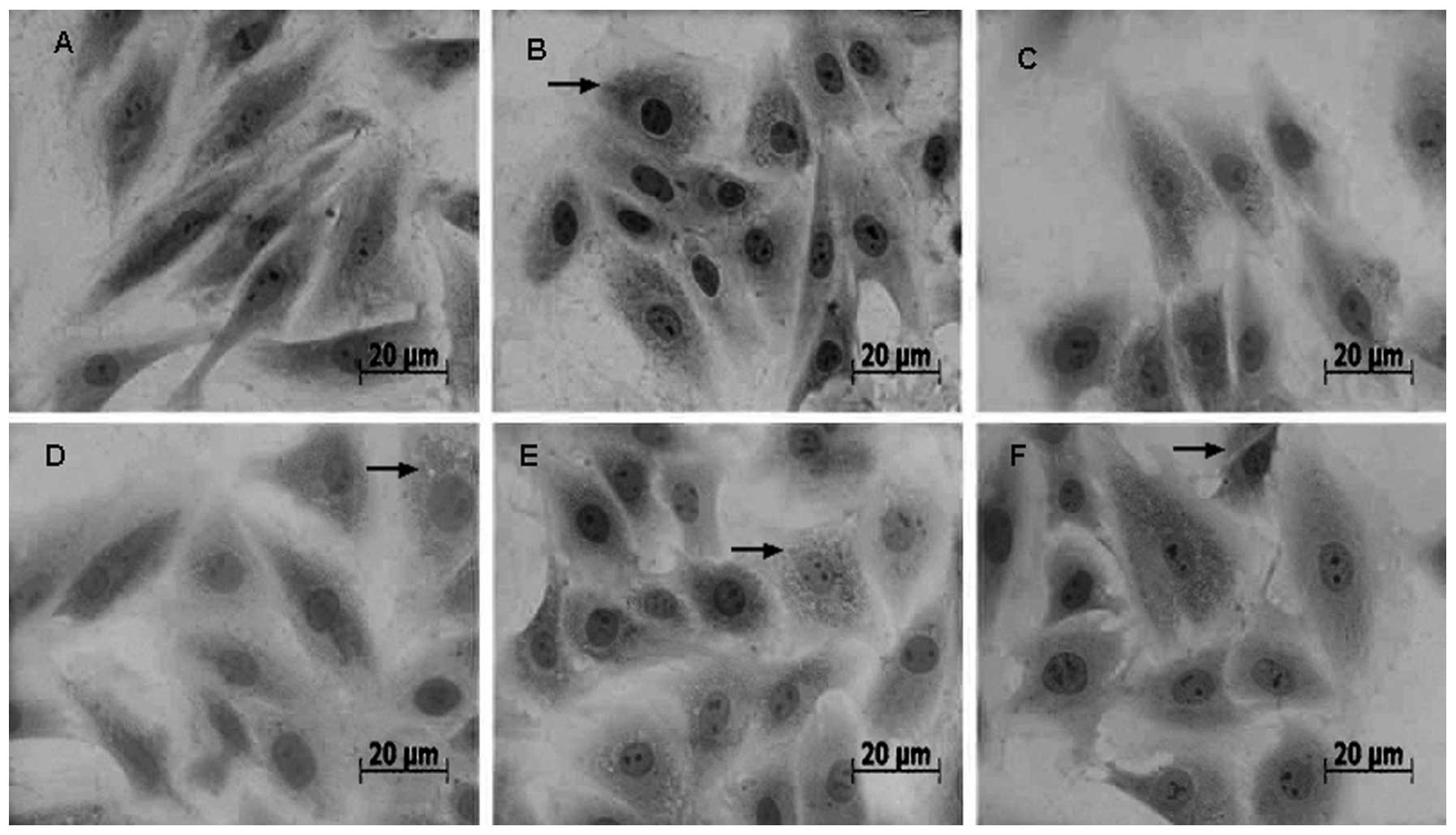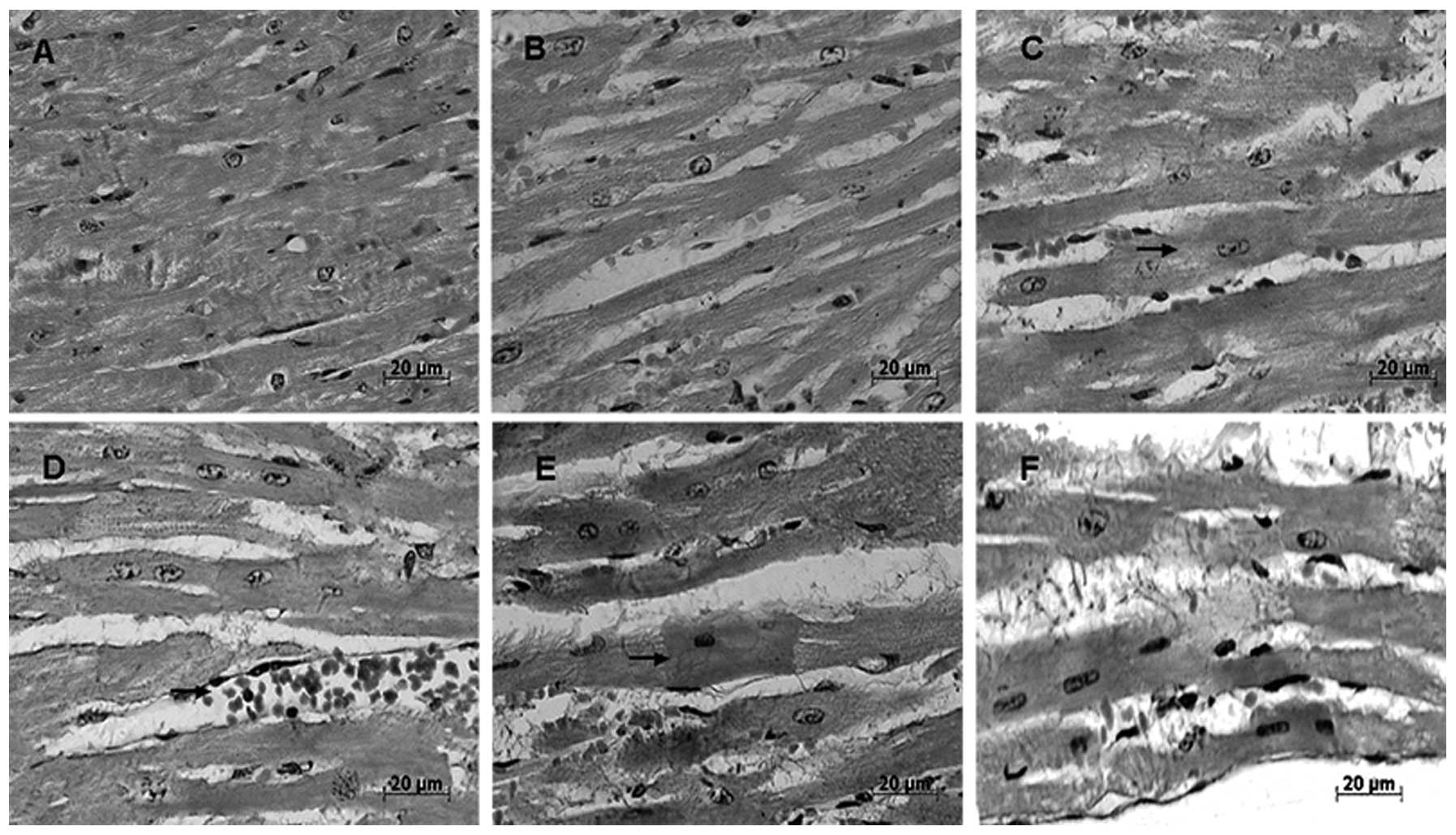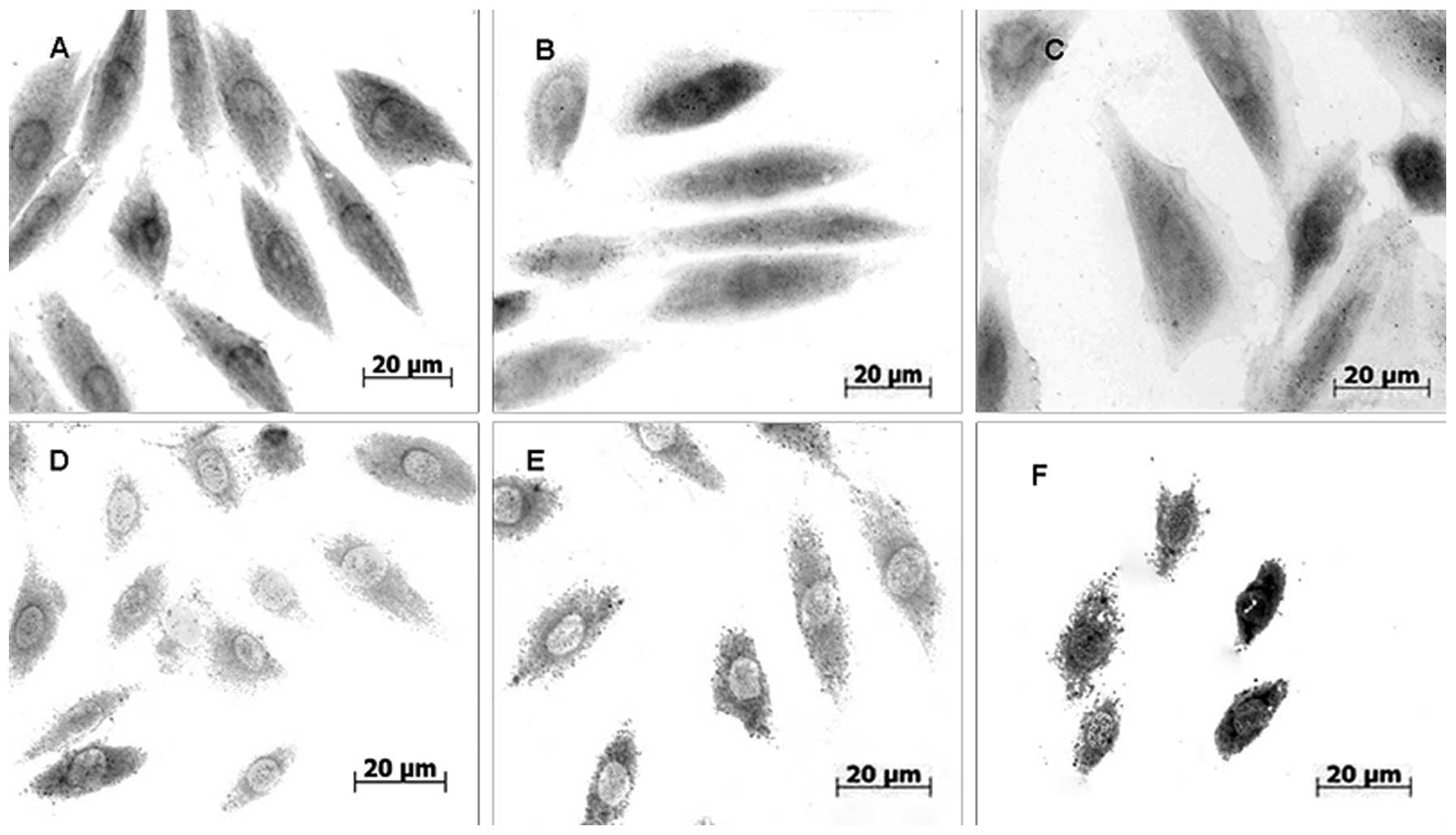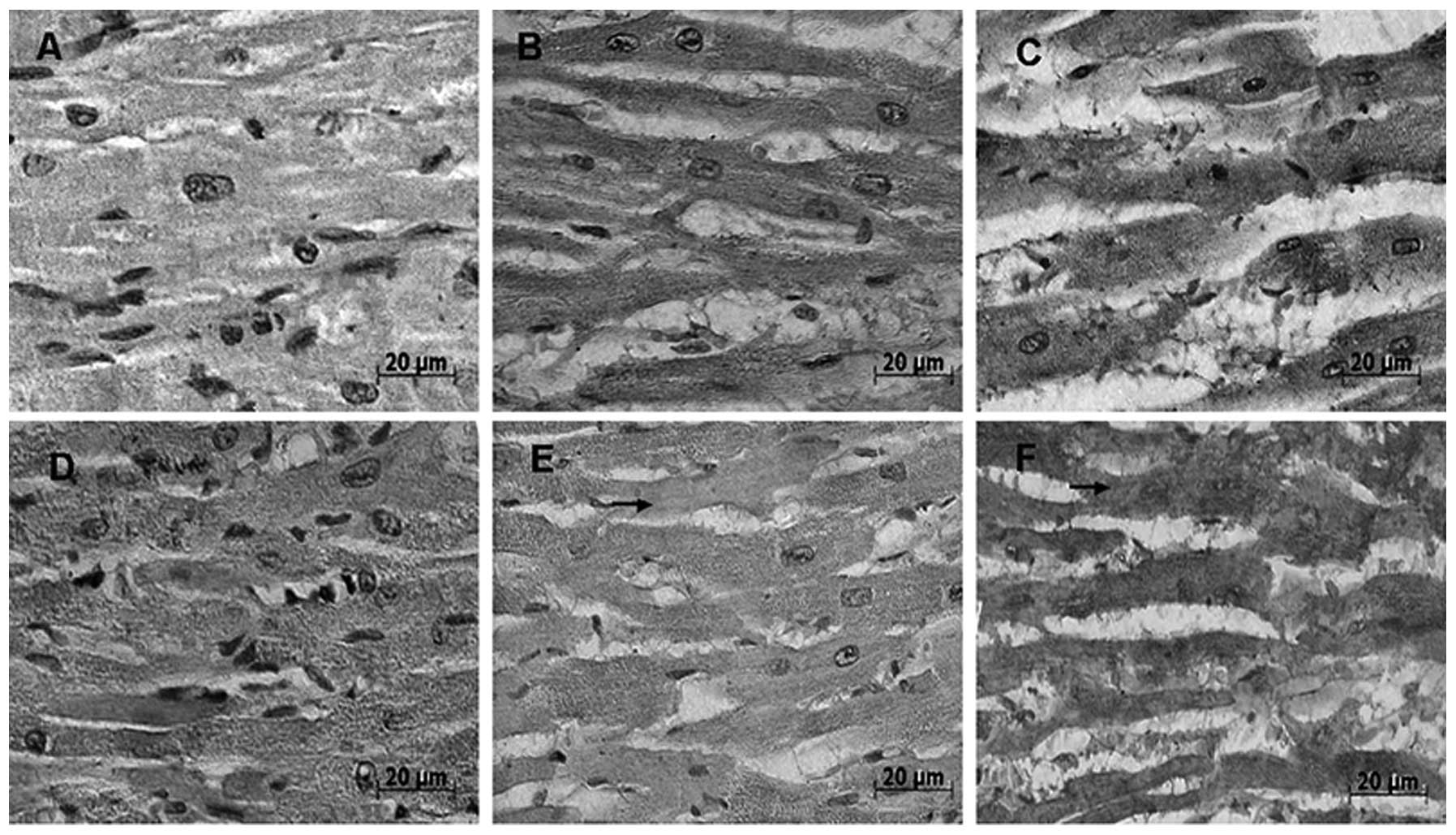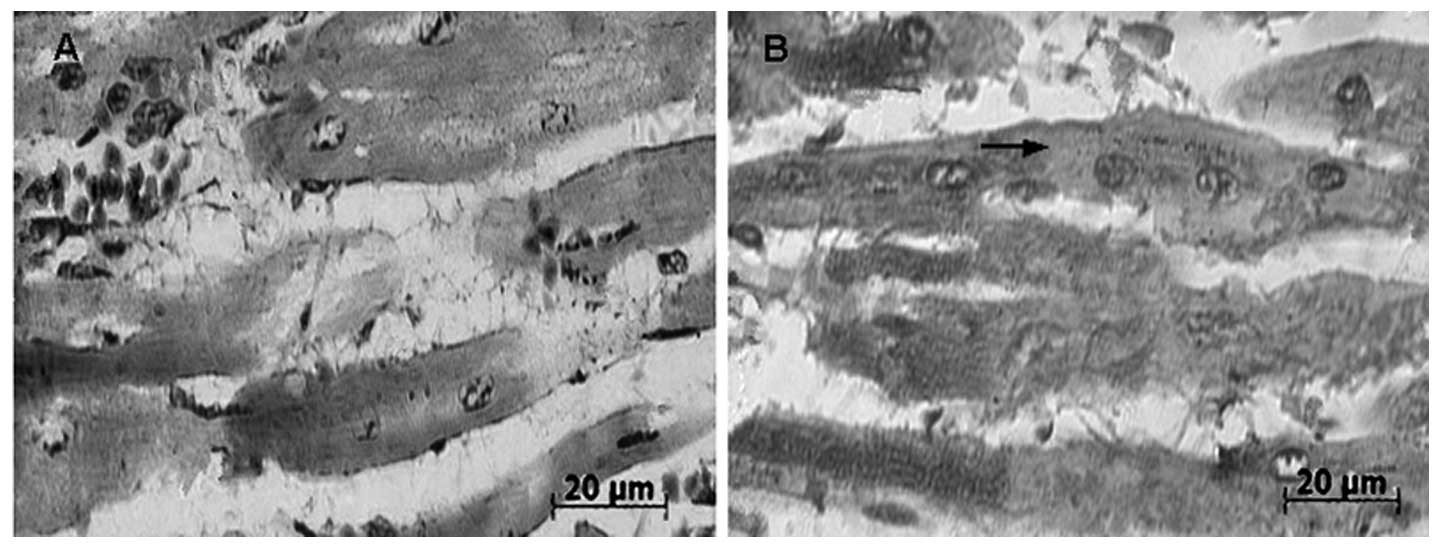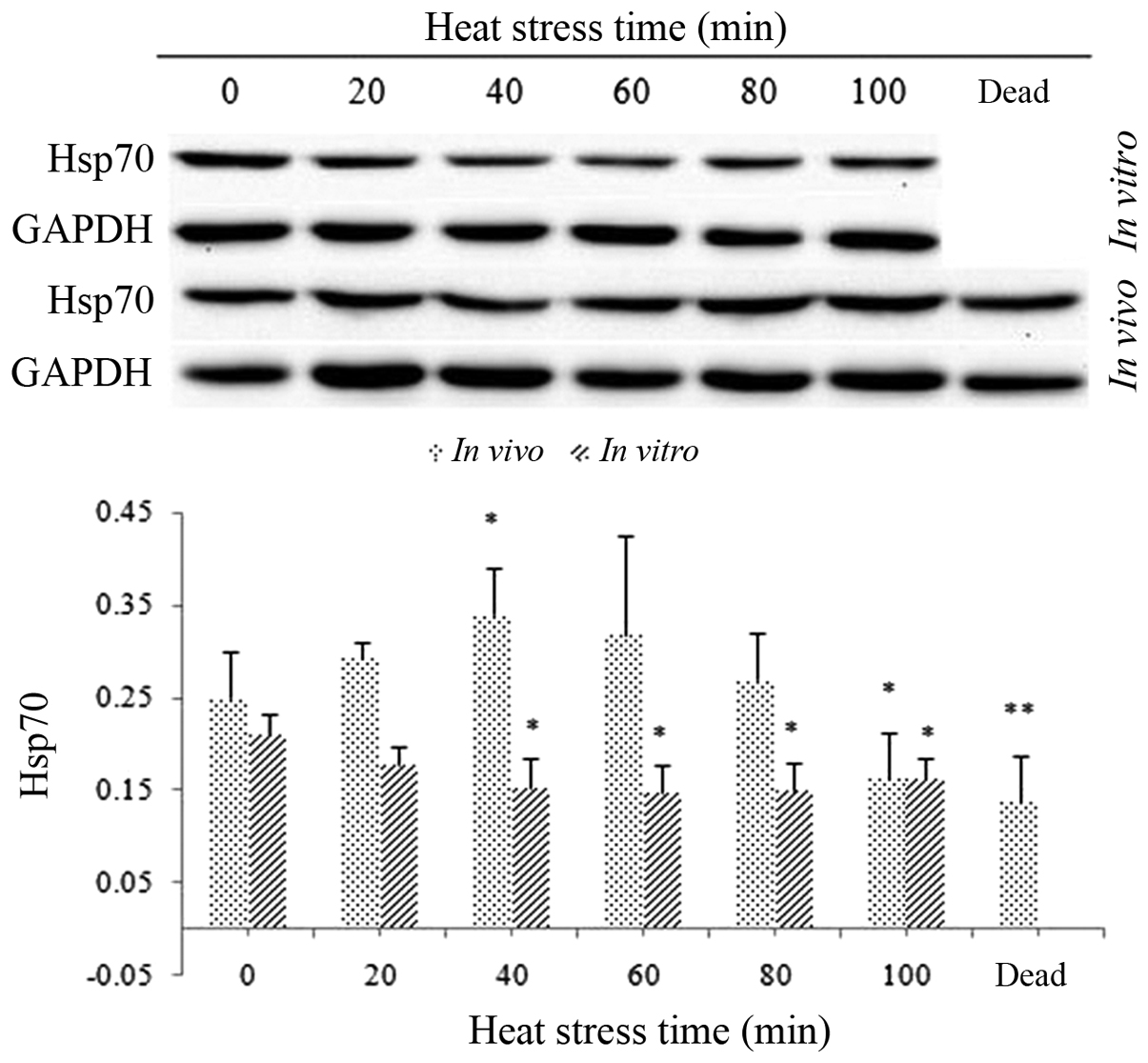|
1
|
Banerjee Mustafi S, Chakraborty PK, Dey RS
and Raha S: Heat stress upregulates chaperone heat shock protein 70
and antioxidant manganese superoxide dismutase through reactive
oxygen species (ROS), p38MAPK, and Akt. Cell Stress Chaperones.
14:579–589. 2009. View Article : Google Scholar : PubMed/NCBI
|
|
2
|
van der Hel W, Verstegen MW, Pijls L and
van Kampen M: Effect of two-day temperature exposure of neonatal
broiler chicks on growth performance and body composition during
two weeks at normal conditions. Poult Sci. 71:2014–2021. 1992.
View Article : Google Scholar : PubMed/NCBI
|
|
3
|
Geraert PA, Padilha JC and Guillaumin S:
Metabolic and endocrine changes induced by chronic heat exposure in
broiler chickens: growth performance, body composition and energy
retention. Br J Nutr. 75:195–204. 1996.PubMed/NCBI
|
|
4
|
Mashaly MM, Hendricks GL III, Kalama MA,
Gehad AE, Abbas AO and Patterson PH: Effect of heat stress on
production parameters and immune responses of commercial laying
hens. Poult Sci. 83:889–894. 2004. View Article : Google Scholar : PubMed/NCBI
|
|
5
|
Lee WC, Lin KY, Chiu YT, et al:
Substantial decrease of heat shock protein 90 in ventricular
tissues of two sudden-death pigs with hypertrophic cardiomyopathy.
FASEB J. 10:1198–1204. 1996.PubMed/NCBI
|
|
6
|
Hu Y, Jin H, Du X, et al: Effects of
chronic heat stress on immune responses of the foot-and-mouth
disease DNA vaccination. DNA Cell Biol. 26:619–626. 2007.
View Article : Google Scholar : PubMed/NCBI
|
|
7
|
Lu Q, Wen J and Zhang H: Effect of chronic
heat exposure on fat deposition and meat quality in two genetic
types of chicken. Poult Sci. 86:1059–1064. 2007. View Article : Google Scholar : PubMed/NCBI
|
|
8
|
McCormick PH, Chen G, Tlerney S, Kelly CJ
and Bouchier-Hayes DJ: Clinically relevant thermal preconditioning
attenuates ischemia-reperfusion injury. J Surg Res. 109:24–30.
2003. View Article : Google Scholar : PubMed/NCBI
|
|
9
|
Ganter MT, Ware LB, Howard M, et al:
Extracellular heat shock protein 72 is a marker of the stress
protein response in acute lung injury. Am J Physiol Lung Cell Mol
Physiol. 291:L354–L361. 2006. View Article : Google Scholar : PubMed/NCBI
|
|
10
|
Staib JL, Quindry JC, French JP, Criswell
DS and Powers SK: Increased temperature, not cardiac load,
activates heat shock transcription factor 1 and heat shock protein
72 expression in the heart. Am J Physiol Regul Integr Comp Physiol.
292:R432–R439. 2007. View Article : Google Scholar
|
|
11
|
Li Z and Srivastava P: Heat-shock
proteins. Curr Protoc Immunol. Appendix 1: Appendix 1T. 2004.
View Article : Google Scholar
|
|
12
|
Lindquist S and Craig EA: The heat-shock
proteins. Annu Rev Genet. 22:631–677. 1988. View Article : Google Scholar : PubMed/NCBI
|
|
13
|
Liu L, Zhang X, Qian B, et al:
Over-expression of heat shock protein 27 attenuates
doxorubicin-induced cardiac dysfunction in mice. Eur J Heart Fail.
9:762–769. 2007. View Article : Google Scholar : PubMed/NCBI
|
|
14
|
Lepore DA, Knight KR, Anderson RL and
Morrison WA: Role of priming stresses and Hsp70 in protection from
ischemia-reperfusion injury in cardiac and skeletal muscle. Cell
Stress Chaperones. 6:93–96. 2001. View Article : Google Scholar : PubMed/NCBI
|
|
15
|
Knowlton AA, Kapadia S, Torre-Amione G, et
al: Differential expression of heat shock proteins in normal and
failing human hearts. J Mol Cell Cardiol. 30:811–818. 1998.
View Article : Google Scholar : PubMed/NCBI
|
|
16
|
Gray CC, Amrani M and Yacoub MH: Heat
stress proteins and myocardial protection: experimental model or
potential clinical tool? Int J Biochem Cell Biol. 31:559–573. 1999.
View Article : Google Scholar : PubMed/NCBI
|
|
17
|
Oyake J, Otaka M, Matsuhashi T, et al:
Over-expression of 70-kDa heat shock protein confers protection
against monochloramine-induced gastric mucosal cell injury. Life
Sci. 79:300–305. 2006. View Article : Google Scholar : PubMed/NCBI
|
|
18
|
Cvoro A, Dundjerski J, Trajković D and
Matić G: Heat stress affects the glucocorticoid receptor
interaction with heat shock protein Hsp70 in the rat liver. Biochem
Mol Biol Int. 46:63–70. 1998.PubMed/NCBI
|
|
19
|
Evdonin AL, Guzhova IV, Margulis BA and
Medvedeva ND: Extracellular heat shock protein 70 mediates heat
stress-induced epidermal growth factor receptor transactivation in
A431 carcinoma cells. FEBS Lett. 580:6674–6678. 2006. View Article : Google Scholar : PubMed/NCBI
|
|
20
|
Dwyer BE, Nishimura RN and Brown IR:
Synthesis of the major inducible heat shock protein in rat
hippocampus after neonatal hypoxia-ischemia. Exp Neurol. 104:28–31.
1989. View Article : Google Scholar : PubMed/NCBI
|
|
21
|
Li HM, Niki T, Taira T, Iguchi-Ariga SM
and Ariga H: Association of DJ-1 with chaperones and enhanced
association and colocalization with mitochondrial Hsp70 by
oxidative stress. Free Radic Res. 39:1091–1099. 2005. View Article : Google Scholar : PubMed/NCBI
|
|
22
|
Drummond IA and Steinhardt RA: The role of
oxidative stress in the induction of Drosophila heat-shock
proteins. Exp Cell Res. 173:439–449. 1987. View Article : Google Scholar : PubMed/NCBI
|
|
23
|
Morimoto RI: Cells in stress:
transcriptional activation of heat shock genes. Science.
259:1409–1410. 1993. View Article : Google Scholar : PubMed/NCBI
|
|
24
|
Sorger PK: Heat shock factor and the heat
shock response. Cell. 65:363–366. 1991. View Article : Google Scholar : PubMed/NCBI
|
|
25
|
Wu C: Heat shock transcription factors:
structure and regulation. Annu Rev Cell Dev Biol. 11:441–469. 1995.
View Article : Google Scholar : PubMed/NCBI
|
|
26
|
Beckmann RP, Mizzen LA and Welch WJ:
Interaction of Hsp 70 with newly synthesized proteins: implications
for protein folding and assembly. Science. 248:850–854. 1990.
View Article : Google Scholar : PubMed/NCBI
|
|
27
|
Njemini R, Bautmans I, Lambert M, Demanet
C and Mets T: Heat shock proteins and chemokine/cytokine secretion
profile in ageing and inflammation. Mech Ageing Dev. 128:450–454.
2007. View Article : Google Scholar : PubMed/NCBI
|
|
28
|
Pierzchalski P, Krawiec A, Ptak-Belowska
A, Barańska A, Konturek SJ and Pawlik WW: The mechanism of
heat-shock protein 70 gene expression abolition in gastric
epithelium caused by helicobacter pylori infection. Helicobacter.
11:96–104. 2006. View Article : Google Scholar : PubMed/NCBI
|
|
29
|
Lee WC, Lin KY, Chiu YT, et al:
Substantial decrease of heat shock protein 90 in ventricular
tissues of two sudden-death pigs with hypertrophic cardiomyopathy.
FASEB J. 10:1198–1204. 1996.PubMed/NCBI
|
|
30
|
Jabiry-Zieniewicz Z, Bobrowska K, Kaminski
P, Wielgos M, Zieniewicz K and Krawczyk M: Low-dose hormonal
contraception after liver transplantation. Transplant Proc.
39:1530–1532. 2007. View Article : Google Scholar : PubMed/NCBI
|
|
31
|
Radosavljević T, Mladenović D, Vucević D,
et al: Effect of acute lindane and alcohol intoxication on serum
concentration of enzymes and fatty acids in rats. Food Chem
Toxicol. 46:1739–1743. 2008. View Article : Google Scholar
|
|
32
|
Yu J, Bao E, Yan J and Lei L: Expression
and localization of Hsps in the heart and blood vessel of
heat-stressed broilers. Cell Stress Chaperones. 13:327–335. 2008.
View Article : Google Scholar : PubMed/NCBI
|
|
33
|
Tang S, Lv Y, Chen H, et al: Comparative
analysis of αB-crystallin expression in heat-stressed myocardial
cells in vivo and in vitro. PLoS One. 9:e869372014. View Article : Google Scholar
|
|
34
|
Mitchell MA and Sandercock DA: Creatine
kinase isoenzyme profiles in the plasma of the domestic fowl
(Gallus domesticus): effects of acute heat stress. Res Vet Sci.
59:30–34. 1995. View Article : Google Scholar : PubMed/NCBI
|
|
35
|
Britton CV, Hernandez A and Roberts R:
Plasma creatine kinase isoenzyme determinations in infants and
children. Characterization in normal patients and after cardiac
catheterization and surgery. Chest. 77:758–760. 1980. View Article : Google Scholar : PubMed/NCBI
|
|
36
|
Zhang M, Xin L, Bao E, Hartung J and Yue
Z: Variation in the expression of Hsp27, αB-crystallin mRNA and
protein in heart and liver of pigs exposed to different transport
times. Res Vet Sci. 90:432–438. 2011. View Article : Google Scholar
|
|
37
|
Gullo CA and Teoh G: Heat shock proteins:
to present or not, that is the question. Immunol Lett. 94:1–10.
2004. View Article : Google Scholar : PubMed/NCBI
|
|
38
|
Georgopoulos C and Welch WJ: Role of the
major heat shock proteins as molecular chaperones. Annu Rev Cell
Biol. 9:601–634. 1993. View Article : Google Scholar : PubMed/NCBI
|
|
39
|
Easton DP, Kaneko Y and Subjeck JR: The
hsp110 and Grp1 70 stress proteins: newly recognized relatives of
the Hsp70s. Cell Stress Chaperones. 5:276–290. 2000. View Article : Google Scholar : PubMed/NCBI
|
|
40
|
Geum D, Son GH and Kim K:
Phosphorylation-dependent cellular localization and
thermoprotective role of heat shock protein 25 in hippocampal
progenitor cells. J Biol Chem. 277:19913–19921. 2002. View Article : Google Scholar : PubMed/NCBI
|
|
41
|
Kervinen H, Huittinen T, Vaarala O, et al:
Antibodies to human heat shock protein 60, hypertension and
dyslipidemia. A study of joint effects on coronary risk.
Atherosclerosis. 169:339–344. 2003. View Article : Google Scholar : PubMed/NCBI
|
|
42
|
Bao E, Sultan K, Nowak B and Hartung J:
Expression and distribution of heat shock proteins in the heart of
transported pigs. Cell Stress Chaperones. 13:459–466. 2008.
View Article : Google Scholar : PubMed/NCBI
|
|
43
|
Kilgore JL, Musch TI and Ross CR: Physical
activity, muscle, and the HSP70 response. Can J Appl Physiol.
23:245–260. 1998. View Article : Google Scholar : PubMed/NCBI
|
|
44
|
Locke M and Noble EG: Stress proteins: the
exercise response. Can J Appl Physiol. 20:155–167. 1995. View Article : Google Scholar : PubMed/NCBI
|
|
45
|
Lindquist S and Petersen R: Selective
translation and degradation of heat-shock messenger RNAs in
Drosophila. Enzyme. 44:147–166. 1990.PubMed/NCBI
|
|
46
|
Simard JP, Reynolds DN, Kraguljac AP,
Smith GS and Mosser DD: Overexpression of HSP70 inhibits cofilin
phosphorylation and promotes lymphocyte migration in heat-stressed
cells. J Cell Sci. 124(Pt 14): 2367–2374. 2011. View Article : Google Scholar : PubMed/NCBI
|
|
47
|
Matokanovic M, Barisic K, Filipovic-Grcic
J and Maysinger D: Hsp70 silencing with siRNA in nanocarriers
enhances cancer cell death induced by the inhibitor of Hsp90. Eur J
Pharm Sci. 50:149–158. 2013. View Article : Google Scholar : PubMed/NCBI
|
|
48
|
Benjamin IJ and McMillan DR: Stress (heat
shock) proteins molecular chaperones in cardiovascular biology and
disease. Circ Res. 83:117–132. 1998. View Article : Google Scholar : PubMed/NCBI
|
|
49
|
Ciocca DR, Oesterreich S, Chamness GC,
McGuire WL and Fuqua SA: Biological and clinical implications of
heat shock protein 27,000 (Hsp27): a review. J Natl Cancer Inst.
85:1558–1570. 1993. View Article : Google Scholar : PubMed/NCBI
|
|
50
|
Harrington HM, Dash S, Dharmasiri N and
Dharmasiri S: Heat-shock proteins: a search for functions. Aust J
Plant Physiol. 21:843–855. 1994. View Article : Google Scholar
|
|
51
|
Otaka M, Odashima M, Tamaki K and Watanabe
S: Expression and function of stress (heat shock) proteins in
gastrointestinal tract. Int J Hyperthermia. 25:634–640. 2009.
View Article : Google Scholar : PubMed/NCBI
|
|
52
|
Locke M and Tanguay RM: Diminished heat
shock response in the aged myocardium. Cell Stress Chaperones.
1:251–260. 1996. View Article : Google Scholar : PubMed/NCBI
|
|
53
|
Plumier JC and Currie RW: Heat
shock-induced myocardial protection against ischemic injury: a role
for Hsp70? Cell Stress Chaperones. 1:13–17. 1996. View Article : Google Scholar : PubMed/NCBI
|
|
54
|
Knowlton AA: Heat-shock proteins, stress,
and the heart. Ann NY Acad Sci. 723:128–137. 1994. View Article : Google Scholar : PubMed/NCBI
|
|
55
|
Plumier JC, Ross BM, Currie RW, et al:
Transgenic mice expressing the human heat shock protein 70 have
improved post-ischemic myocardial recovery. J Clin Invest.
95:1854–1860. 1995. View Article : Google Scholar : PubMed/NCBI
|
|
56
|
Hutter JJ, Mestril R, Tam EK, Sievers RE,
Dillmann WH and Wolfe CL: Overexpression of heat shock protein 72
in transgenic mice decreases infarct size in vivo. Circulation.
94:1408–1411. 1996. View Article : Google Scholar : PubMed/NCBI
|
|
57
|
Pratt W: The role of heat shock proteins
in regulating the function, folding, and trafficking of the
glucocorticoid receptor. J Biol Chem. 268:21455–21458.
1993.PubMed/NCBI
|
|
58
|
Hartl FU: Molecular chaperones in cellular
protein folding. Nature. 381:571–579. 1996. View Article : Google Scholar : PubMed/NCBI
|
|
59
|
Heydari AR, Wu B, Takahashi R, Strong R
and Richardson A: Expression of heat shock protein 70 is altered by
age and diet at the level of transcription. Mol Cell Biol.
13:2909–2918. 1993.PubMed/NCBI
|
|
60
|
Edens FW, Hill CH and Wang S: Heat shock
protein response in phosphorus-deficient heat-stressed broiler
chickens. Comp Biochem Physiol B. 103:827–831. 1992.PubMed/NCBI
|
|
61
|
Belay T and Teeter RG: Effects of ambient
temperature on broiler mineral balance partitioned into urinary and
faecal loss. Br Poult Sci. 37:423–433. 1996. View Article : Google Scholar : PubMed/NCBI
|
|
62
|
Mahmoud KZ, Beck MM, Scheideler SE, Forman
MF, Anderson KP and Kachman SD: Acute high environmental
temperature and calcium-estrogen relationships in the hen. Poult
Sci. 75:1555–1562. 1996. View Article : Google Scholar : PubMed/NCBI
|
|
63
|
Mahmoud KZ, Edens FW, Eisen EJ and
Havenstein GB: The effect of dietary phosphorus on heat shock
protein mRNAs during acute heat stress in male broiler chickens
(Gallus gallus). Comp Biochem Physiol C Toxicol Pharmacol.
137:11–18. 2004. View Article : Google Scholar : PubMed/NCBI
|















